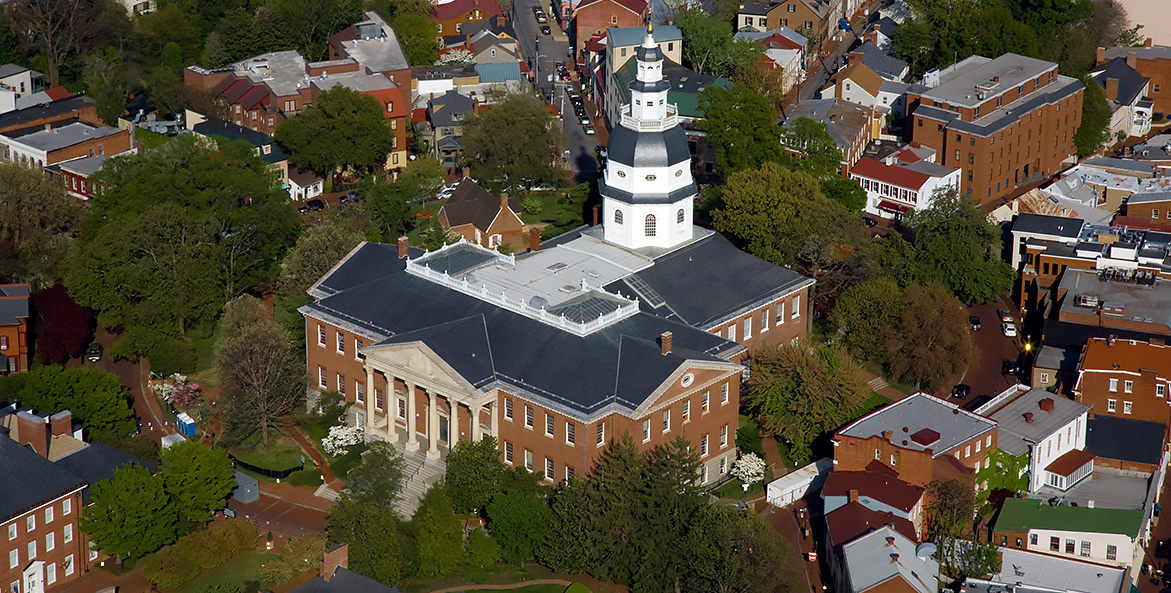Maryland legislators voted for cleaner water and a healthier Chesapeake Bay this General Assembly session. Delegates reviewed a record number of bills, many of which focused on better protections for our state’s beloved natural resources. And with a full budget maintained for Bay programs, we are optimistic.
Maryland is at a critical point in its work to reduce pollution in the Bay and improve water quality. CBF championed several bills in both the house and senate that will help the state achieve those goals. Here we reflect on this year’s victories and lessons learned for future changemaking in Maryland.
The Whole Watershed Act
The Whole Watershed Act is a highly collaborative, science-based approach to watershed restoration across the state. The legislation, introduced by Senator Sarah Elfreth (Anne Arundel) and Delegate Sara Love (Montgomery), will utilize existing state funds to create a five-year program targeting five Maryland watersheds that best represent the state’s diverse land uses, geographies, and impairments. This coordinated, comprehensive, and targeted approach is designed to rapidly improve habitat and water quality in waterways included on the Environmental Protection Agency (EPA)'s impaired waters list. It will utilize the most effective practices in the most effective places and provide projects with additional assistance with permitting, funding, and planning.
Governor Wes Moore’s support of this bill was critical to its passage. It was passed by the General Assembly and now awaits his signature.
New Regulations for Industrial Sludge
Legislators also took action to stop Maryland’s influx of industrial sludge. Industrial sludge, particularly dissolved air flotation (DAF) material, has been of growing concern to farmers and communities. DAF residuals are putrid leftovers derived from the protein rendering process, like poultry and seafood, that are then applied to farmland as an agricultural fertilizer. Over-application and mishandling of this material allow it to run-off into waterways, putting local water quality and Bay health at risk. It also creates foul odors, harms neighboring communities, and inflicts health concerns.
Until now, Maryland had extremely lax regulations for how this material was being hauled, spread, and stored. New legislation will enforce a permitting system similar to those of neighboring states like Delaware and Virginia, giving agencies additional tools to ensure its safe and effective use. The program will improve quality of life for many Marylanders and prevent excessive sludge runoff from entering the Chesapeake Bay.
Other Wins for the Bay
The Whole Watershed Act was chosen as a 2024 legislative priority by the Citizens’ Campaign for the Environment (CCE), the largest environmentally focused legislative coalition in Maryland. Other CCE priorities that passed this session include:
- The Clean Water Justice Act, which allows communities harmed by illegal water pollution to enforce state law. The U.S. Supreme Court recently removed more than half of the nation’s streams and wetlands from federal Clean Water Act protection. Fortunately, Maryland still protects these waterways, but our law provided no right for communities to enforce that law. The Clean Water Justice Act changes that, giving more power to the people most impacted by pollution.
- The Empower Act, which slightly alters the 2008 EmPOWER Maryland Energy Efficiency Program by explicitly requiring electric companies, gas companies, and the Department of Housing and Community Development to adopt energy efficiency and other tools to reduce greenhouse gas emissions.
In other news, the invasive northern snakehead was officially renamed the ‘Chesapeake Channa.’ This legislation aimed to help increase demand for the species on the dinner plate.
Continuing the Fight
Of course, not every bill could claim victory this year. We were disappointed by the stalemate of a bill that would have better enforced the use of living shorelines as a tidal erosion solution, and strengthened Maryland’s resiliency against sea level rise and climate change.
Our state’s implementation of living shorelines has been sluggish, despite it being the Maryland Department of the Environment’s preferred practice. A loophole in the current permitting system allows landowners with an existing hardened shoreline, such as a bulkhead or seawall, to replace their structure with another hardened shoreline without having to go through the initial permitting process. The trend of shoreline hardening exacerbates erosion for neighbors, increases pollution, and destroys habitat for crabs and fish. This year’s bill would have been a straightforward, simple solution to make landowners more likely to choose, and receive funding support for, living shoreline projects instead. We will continue advocating for living shorelines as a best practice for shoreline stabilization.
We’re also continuing the fight for oysters across the Bay. CBF was successful in defeating legislation that would place Maryland’s oyster sanctuaries at risk of poaching. But we have to stay vigilant. Oyster sanctuaries—areas where harvest is prohibited to protect the growth of oyster reef habitat—are critical to our oyster population’s recovery. Illegal oyster harvest is a significant impediment to oyster recovery and maintaining strong deterrents to this behavior is critical for the long-term success of one of the Bay’s most important natural filters, the oyster. We will continue to work with legislators and agencies to avoid backsliding on the tremendous progress oysters made in 2023.




